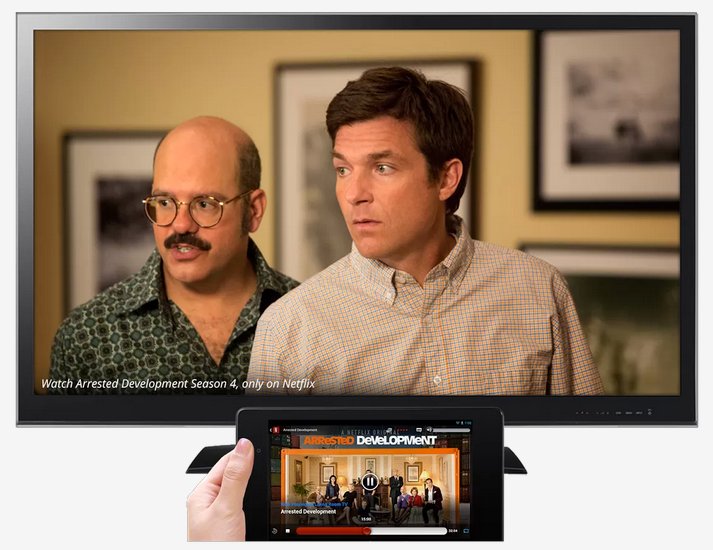

We may earn revenue from the products available on this page and participate in affiliate programs. Learn more ›
When Google released the Chromecast, its USB-flash-drive-sized gadget for streaming internet video to your TV, we wondered why it was so limited. There are developers out there trying to give the Chromecast new abilities–but now, according to one of those developers, Google is intentionally blocking those abilities.
At launch, it could only stream YouTube, Netflix, videos purchased from Google’s iTunes-like Play Store, and, provided your computer was fast enough, it could mirror whatever tab you were viewing in the Chrome browser on your computer. But what about all the videos on your computer already?
In the few weeks since Chromecast has been in the wild, developers have begun to hack that feature together. One developer in particular, Koushik “Koush” Dutta, has been instrumental in all kinds of great work in the effort to make Chromecast do more. Dutta is a member of the team that develops Cyanogen, probably the most popular custom ROM for Android phones. (ROMs are basically hacked versions of regular Android that allow you do do things you couldn’t do before, like overclock the processor or add new features or reassign what the buttons do.) But lately, he’s turned his attention to Chromecast.
His biggest achievement in the Chromecast world is called AirCast, which allows you to play videos through a Chromecast that you couldn’t before–from your Dropbox account, for example. But last night, Koush announced on Reddit that he believes Google is shutting out third-party access so that developers can’t implement all the things the Chromecast is capable of. Here’s his explanation:
Chromecast shipped with no default media player app, or any way to play your own content. As I demonstrated, this is actually very easy to implement. The fact that it did not ship with this by default was likely calculated. They don’t want you playing your own content.
Chromecast had a “GoogleCastSample” app that could be leveraged as a default media player. Many developers started using this. One week after release, GoogleCastSample was disabled.
Chromecast’s tab casting also supported local content. I, and a few other developers, managed to reverse engineer the Chromecast tab protocol to piggy back this to deliver local content. This was not simply “broken” with an update. It was intentionally disabled.
Koush believes that Google is intentionally strangling Chromecast development because Google is trying “to placate media companies.” Third-party developers like Koush could enable Chromecast owners to stream all kinds of things, right now, but he believes Google will box out any development that might anger the big players in content–Viacom, Disney, Time Warner, Fox.
Update: Google got back to us with a statement:
We’re excited to bring more content to Chromecast and would like to support all types of apps, including those for local content. It’s still early days for the Google Cast SDK, which we just released in developer preview for early development and testing only. We expect that the SDK will continue to change before we launch out of developer preview, and want to provide a great experience for users and developers before making the SDK and additional apps more broadly available.
It’s worth noting that Koush has admitted that he reverse-engineered the SDK, because it had yet to be released, which is not exactly a guaranteed way to get Google to like you. That said, this seems primarily to be a result of Google’s tendency to release devices early; if Google had simply waited to release the Chromecast until the SDK was ready (and app development could begin), none of this would have happened. So! We don’t really know what Google’s reaction to developers will be, once Google releases the tools that developers need.
